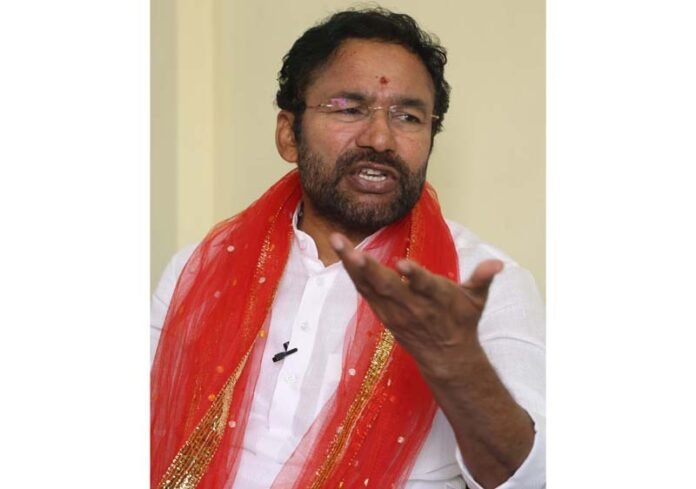In a recent interview, Union Minister of Coal and Mines and BJP’s election in-charge for Jammu & Kashmir, G K Reddy, reiterated the Government of India’s unwavering resolve to reclaim Pakistan-occupied Jammu and Kashmir (PoJK). Reddy blamed the previous Congress governments for the loss of territory to Pakistan, accusing them of committing a historical blunder by handing over a significant portion of the erstwhile state to Pakistan in their bid to appease the National Conference (NC) and Pakistan.
Reddy emphasized that the BJP remains committed to retrieving PoJK, referencing the joint Parliamentary resolution passed in 1994, which declared PoJK as an integral part of India. He highlighted the BJP’s firm stance by pointing out that 24 seats have been reserved in the J&K Assembly for PoJK, signifying the national commitment to regain the lost territory.
J&K’s Transformation After Article 370 Abrogation
According to Reddy, the abrogation of Article 370 has brought about significant positive changes in Jammu and Kashmir. He asserted that peace has been restored, and the Union Territory (UT) is now on a rapid path to development. Unlike the years of turmoil, there have been no reports of strikes, terrorist attacks, bomb blasts, or stone-pelting incidents in recent years. He credited Prime Minister Narendra Modi’s government for this transformation, stating that Article 370 was a major obstacle to J&K’s progress, and its removal has paved the way for unprecedented development.
Reddy pointed to the revival of the tourism industry as one of the major achievements post-abrogation. He mentioned that over 400 films, including Hindi and animated movies, have been shot in Kashmir Valley since Article 370 was scrapped. Additionally, more than two crore tourists visited Kashmir last year, reflecting the region’s improved security situation and attractiveness to visitors.
The Role of Strong Leadership
The minister praised PM Modi for his strong leadership, particularly in dealing with Pakistan. Reddy noted that under Modi’s government, India has isolated Pakistan on the global stage, with the world recognizing Pakistan as a terrorist-sponsoring state. Reddy contrasted this with the Congress era, where, according to him, the government was hesitant to confront Pakistan.
He also criticized the National Conference and Congress for supporting dialogue with Pakistan, stating that past negotiations with Pakistan had only led to betrayal. Reddy made it clear that the BJP opposes such talks, citing instances of backstabbing during the Vajpayee government when Pakistan failed to honor its commitments.
A Call for New Leadership in J&K
Reddy urged the people of J&K to reject dynastic political parties like the National Conference and the People’s Democratic Party (PDP), which he accused of ruining the state over the years. He called for the emergence of new leadership in the UT and emphasized the BJP’s developmental agenda, highlighting the establishment of institutions like AIIMS, IIT, IIMs, Jambu Zoo, and the construction of expressways, flyovers, medical colleges, and thousands of houses for houseless families.
He also expressed disappointment with the local BJP leadership for not effectively communicating the party’s development narrative to the people. Nevertheless, he expressed confidence that the people of J&K would give a decisive mandate to the BJP in the upcoming elections, citing their desire for peace, prosperity, and progress.
In response to a question about the mysterious death of Bharatiya Jana Sangh (BJS) founder Dr. Syama Prasad Mookerjee, Reddy reiterated the BJP’s pledge to release a White Paper on all terrorist killings in J&K since 1947, including Dr. Mookerjee’s case.
Conclusion
Union Minister G K Reddy’s remarks underscore the BJP’s focus on reclaiming PoJK, strengthening security, and fostering development in J&K post-Article 370. His criticism of Congress and the regional dynastic parties reflects the BJP’s push for new leadership and its vision for the future of Jammu and Kashmir.

